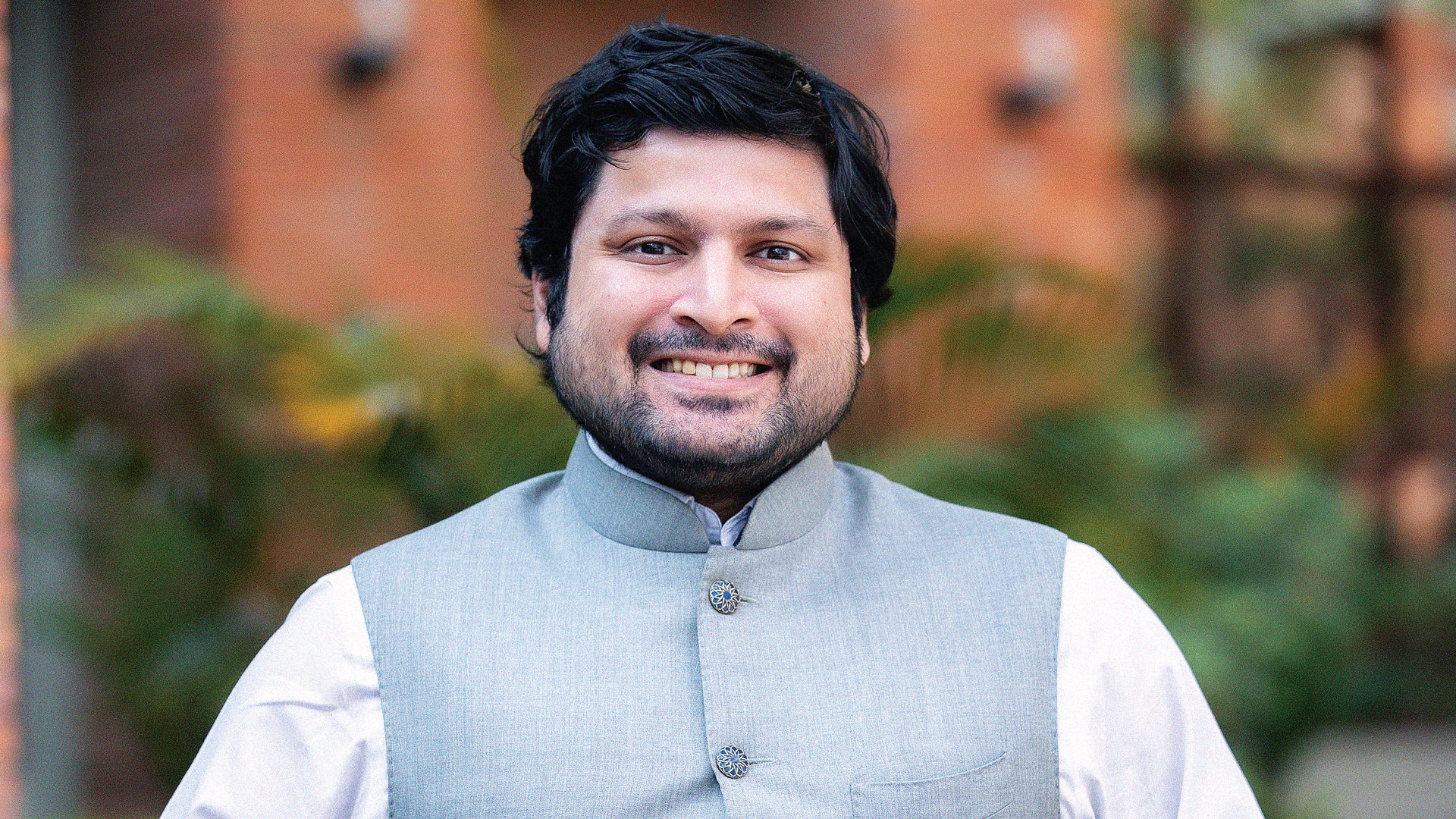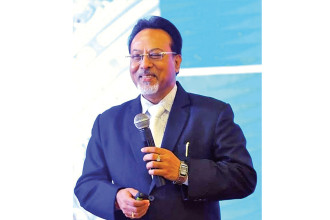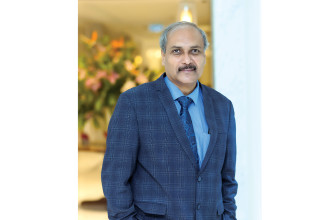
Ameya Prabhu Founder and Managing Director, NAFA Capital Advisors Ameya Prabhu is an entrepreneur, investor, and author based in Mumbai, India. He is the Founder and Managing Director of NAFA Capital Advisors, a leading asset management firm in India that invests in public equities, private equity, venture capital, and debt capital markets. Additionally, he is Partner in UAP Advisors LLP which is involved in asset management, principal investing, investment banking, and sustainability-focused strategic advisory services. Prabhu is a graduate of the University of Warwick where he received his BSc in Economics, Politics and International Studies. He also holds an MSc degree in Financial Management from IE Business School in Madrid, Spain. In 2022, he completed the Global Leadership and Public Policy 21st Century Programme at Harvard University’s John F Kennedy School of Government. Prabhu has been designated a Young Global Leader by the World Economic Forum. He is also the President elect of the Indian Chamber of Commerce (ICC). In addition, Prabhu is a trustee of Manav Sandhan Vikas Sanstha, an NGO focused on skill training and development in rural and semi-urban India, with an emphasis on job creation for women and underprivileged classes. He is also the Vice Chairman of Konkan Krida Prabodhini, which promotes sports in the rural Konkan region of Maharashtra. He is also a member of the advisory board of Climate Group India and serves on the board of MiracleFeet India, an NGO focused on eliminating clubfoot in India. He was formerly the Chairperson of the Young Leaders Forum of the IMC Chamber of Commerce and Industry and is currently the Brand Ambassador for startups in the Indo-Canadian Chamber of Commerce. Prabhu is a prolific writer, and his writings have been published by well-known global media outlets such as the Huffington Post, The Quint, and Business Today. His book of short stories, ‘The Rock Babas and Other Stories’, has been published by Amazon and sold in over 40 countries globally.
In this edition of Business 360, we had the opportunity to talk to Ameya Prabhu and get his views on the latest trends and strategies in the business world.
Excerpts: Asset management is a new term in Nepal but India is way ahead. Could you explain the scenario of asset management in India and its importance for countries like Nepal?
If you look at India 30 years ago, we opened up our markets in 1991 and there were almost no private equity funds, no PMS and at the time there were government mutual funds and not many private mutual funds at all at the time. Moving forward 30 years, India has plenty of private mutual funds, plenty of players. In the private debt markets, you have a lot of global private equity funds from Blackstone. They are all present in India. It’s a large market. It’s now the world’s fifth largest economy and dominant, and it is the third largest in BPP terms. We have seen that change happen, we have seen greater participation of people in the markets, and people investing is also increasing. This happened over time and eventually the same will happen in Nepal as investment opportunities increase here. I think one great advantage for Nepal is that you have a very large community abroad which sends back billions of dollars in remittance. As asset managers, we manage somebody else’s capital and furthermore invest that in various sectors such as infrastructure, road equity, startups, public markets and also in debt. But the core essence of all of this is that it’s actually being invested in the economy because every economy needs capital to grow. An example would be if you look at China today. It is the second largest economy in the world and the largest economy in the world on purchasing power parity terms. Now, when did China really grow? If you think of it, China opened up in 1979, but in the early 90’s, Deng Xiaoping really called upon the global Chinese community. The Chinese also have a lot of non-resident Chinese expats. People have been living away from China for many years. He told the global Chinese community to come and support China in its growth journey and invest in its growth journey. The country needs an experienced person who’s got knowledge of the market, knowledge of the ability to de-risk and find the right investment opportunities to invest. And that’s where an asset manager really comes in. Asset management is crucial because it will help allocate capital to various sectors, especially because Nepal has a huge inflow of remittances, a lot of NRNs investing or sending money back to Nepal. So effectively channelling that money to get good returns is very important because there’s no point in that money coming in and not being invested in markets. Hence, asset management is important for every country. A stable government and investors who have a good amount of knowledge of where and how to invest can help in boosting the economy of Nepal.
Private equity and mutual funds are considered to be important to minimise risks associated with investments. Could you please elaborate on how risks are minimised for investors?
Every investment has its risk. Fundamentally, one has to do their own risk assessment, how much risk are they willing to take? And based on the risk of the investment where they are completely risk averse, they might want to focus on being in fixed deposits or insurance or debt mutual funds which are invested in good or reputable companies, for example, in India it could be the Tata Group or ONGC. The government companies that are large corporations will give you a lower rate of return, but the risk reward is that they have a low rate of return making them less risky. Every other fund has high and low risks. Explaining that risk to investors in a simplistic manner, safeguarding the interests of investors and disseminating that information in a way that can be understood by all should be the key focus to minimise risk for investors.
Low returns on mutual funds has been seen as a reason for low response from the public. Will this change?
On the public equity side, what we have is a PMS which is slightly different from mutual funds. So, in a mutual fund the minimum investment is much smaller. You can even invest as low as INR 500, whereas for others, the Securities and Exchange Board of India (SEBI), which is the public market regulator in India, has made it mandatory whereby the minimum investment for PMS is INR 50 lakhs. Similarly, for an Alternative Investment Fund, the minimum investment side is about a crore. The reason why the barrier to entry is higher in a PMS or in AIF is that SEBI wants experienced investors to invest in that space. Whereas mutual funds are more of a retail product where everybody can invest in retail. But I wouldn’t say that mutual funds have given lower returns. It would all depend upon which mutual fund is the one that you are focused on. There will be mutual funds which underperform in the market and there are mutual funds that outperform the market. Also, not all mutual funds are equity only; you have equity mutual funds, debt mutual funds, liquid mutual funds, mixed mutual funds which invest in a mix of debt and equity. So, I think based on the risk profile that each investor has, they should choose what they want to invest in. The market today offers a wide variety of financial products for the interested party. And even today, equity participation in a market like India is still quite low because even now the mutual fund penetration is low, insurance penetration is also low and has a long way to go.
As the President elect of the Indian Chamber of Commerce, what is your agenda moving forward?
The Indian Chamber of Commerce is the third largest chamber in India but the largest in the eastern region meaning it is a huge responsibility. Our focus is promotion of business, policy advocacy, and promoting the region. We have signed a memorandum with the Confederation of Nepalese Industries (CNI) because we are big believers in the neighbourhood first policy. India will be hosting the G20 meet this year. I think as we continue to grow, we should not forget our neighbours. India is the largest market for Nepal and Nepal is the ninth largest market for India. Hence, it is not small. In terms of goods and services, there are issues that are faced by Nepali business people and vice versa. Therefore, through the collaboration with CNI, we want to see how we can resolve these issues because ultimately the greatest job of a Chamber of Commerce is to facilitate businesses and solve problems. So as long as we can do that, become problem solver, solve issues for our members, for business people, for small entrepreneurs in India and in Nepal, then we will be happy. Our goal is to create a pathway for everyone.
How do you manage your time even writing books and actively engaging with different organisations?
I think the key is effective time management. If you ask me, I think firstly, the only finite commodity we have as human beings is time. I think the one truth of life is we all die one day. And I think the minute you realise that there is a finiteness to life that gives you a life with a lot more meaning. Ultimately that also helps you divide your time better. So, it’s important. In my life, I believe there are four pillars that I like to divide my time between. One is my work, which is what I do for profit where I have my financial services, asset management firm, investment banking business and we are now expanding into agriculture as well. I have to allocate time for each of the ventures and it does take a substantial portion of my time. The second is what you love to do and I really love to write. That’s what gives me happiness. That’s my passion. And I’ve written a book of short stories. The pandemic gave me a lot of time to do that. I would say the third aspect, of course, is your family aspect. It’s very important to spend time with your family because they are the ones who are always with you - your wife, your parents, your children. The fourth one is giving back to the community. I think it is very critical that one must give back to society because ultimately, knowingly or unknowingly, it is a society that is helping us in our endeavours while we move forward. The fact that all of us can sleep at home at night peacefully, the fact that we have access to all the necessities is because some people are working in the municipal department, some are working in other utilities. There are tireless people putting in a lot of effort. So, I think it’s important that we give back to society, especially in countries like India and Nepal where poverty rates are still high.
READ ALSO:





